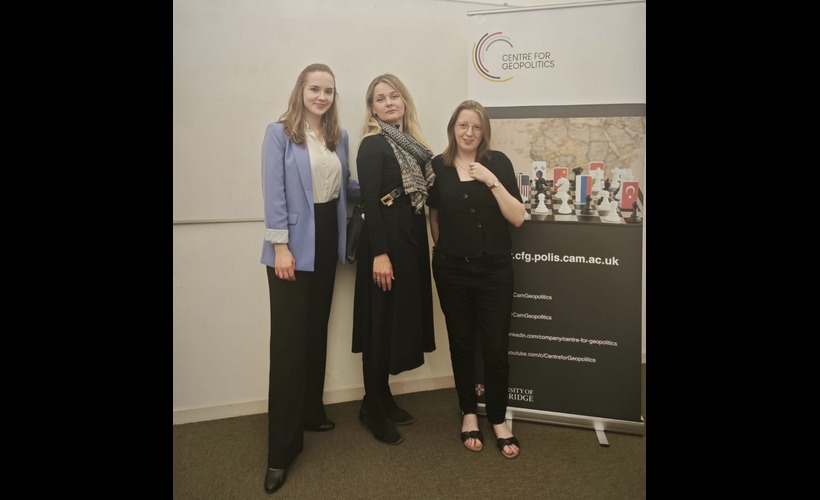As we approach the first anniversary of the launch of the Baltic Geopolitics Programme, Dr Donatas Kupciunas interviews the programme’s Joint Leader, Rt Hon Charles Clarke.
Q. Why is the Baltic region important in today’s world politics, and why do you think it is important for Britain specifically?
The Baltic region, and in particular the UK-Baltic relationship, has always been important in terms both of trade and economics and of geopolitical power relationships. These are particularly important now when Britain has left the European Union. Britain and the Baltic countries have many things in common such as our well-established democracies, our approach to economic innovation and growth and our commitment to sustainability.
And the important Baltic frontline between Russia and its neighbours makes it even more important that Britain works well with the countries in the region to address the challenges which exist.
Q. Could you tell us more about the genesis of the Baltic programme at the Centre for Geopolitics and how you became involved?
My personal commitment to the Baltic region stems from the fact that my wife’s mother was an Estonian who fled in front of the Russians in September 1944. Learning about that introduced me to a whole series of historical understandings of which I had previously been almost entirely ignorant. Our first trip together to Estonia in 1988 was a revelation.
I thus became strongly committed to trying to ensure that people in Britain understand more about the Baltic relationship. One of the flaws in the general British worldview tends to be our focus on the German/French conflict over the last 150 years combined with a relative ignorance of the German/Russian conflict over the same period.
I have long felt that the British university world lacks a sufficient understanding of this history. Indeed only a small number of scholars are engaged in these questions. I was therefore delighted when Brendan Simms decided to address this weakness as part of the “European Orders” dimension of the Centre for Geopolitics. We held our first event in June 2020, under lockdown, since when we have had 14 other events which have considered a variety of aspects of historical and contemporary UK-Baltic relations. They’ve been very successful which has inspired us to continue and develop them.
Q. What do you think distinguishes the Centre for Geopolitics from other research institutions and think tanks?
Our approach is to consider, first, the whole Baltic Sea (not just the Baltic states); second the UK relationship with this region; third to give priority to understanding and learning from history; fourth to engage practitioners such as government, business, NGOs and the military, as well as academics; and fifth to focus on the geopolitical dimensions of the issues we discuss, whether economic, sustainability, demographic or social.
These attributes give our Centre a distinctive, even unique, approach. In addition, we have from the beginning worked in partnership with universities in the region so that we can learn better. We have built a Baltic Geopolitics network including 11 universities and we will widen and deepen that network in 2022 as other universities have been in touch to express an interest in working more closely with what we’re doing.
What would you list as the main achievements of the Baltic programme since its inception?
Our 15 events so far have taken a variety of different forms, including online panel discussions, in-person lectures and seminars, joint academic conferences with partners in our Baltic geopolitical network such as the University of Gdansk and holding roundtables at important international gatherings including the Warsaw Security Forum.
These activities, and the attention they have gained from governments, opinion formers and others, have begun to give a greater focus to thinking about how best to address the Baltic dimension of current events. We are only at the early stages but I am confident that we are moving in the right direction.
Q. Could you share some of your plans for the Centre’s future?
We had an excellent response to the major symposium we had planned for January on ‘The Baltic contribution to the dissolution of the Soviet Union in 1991’. We’ve had to postpone it due to COVID so it will now take place later in 2022. We will be continuing with our series of events including historical analysis of the role of the Baltic in European economic development; how the geopolitics of the Baltic Sea evolved after the Great War and an in-person conference on ‘tripwire’ deterrence in the region. And we will be thinking hard about the role China is playing in the Baltic. We are starting a programme of book launches focused on the region and in July 2022 we will commence in Vilnius what we hope will be a significant summer school programme.
But the step-change which we hope to achieve next year is to strengthen our research and intellectual capacity in Cambridge. In our first year, we have been able to appoint Donatas Kupciunas as Research Associate, now for 3 years, and by 2025 our aim is to endow a lectureship and a chair capable of supporting PhD candidates. We hope to make significant progress in that direction and there is every reason for optimism that this can be achieved.







